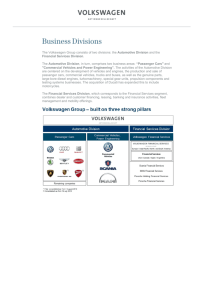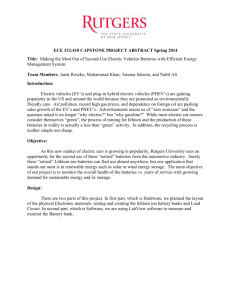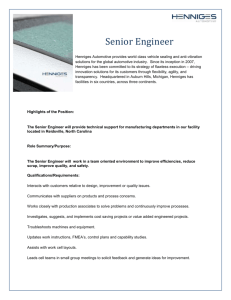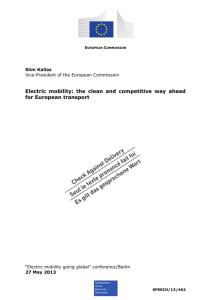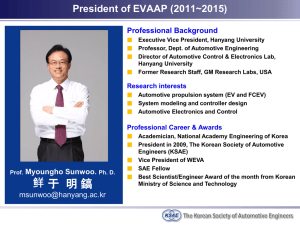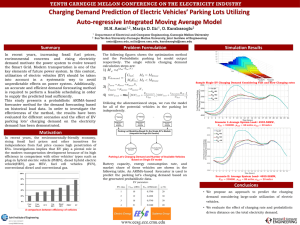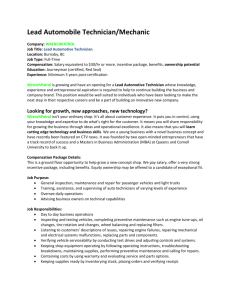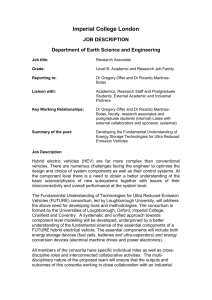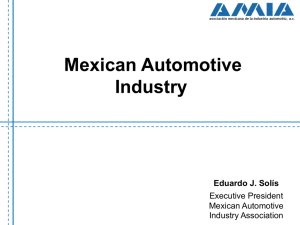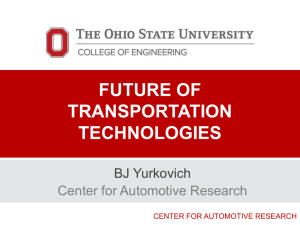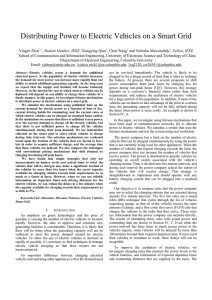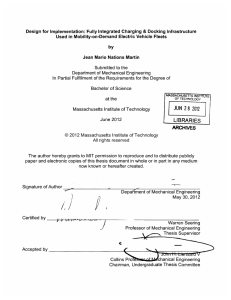Affordable batteries could change the future of electric cars
advertisement
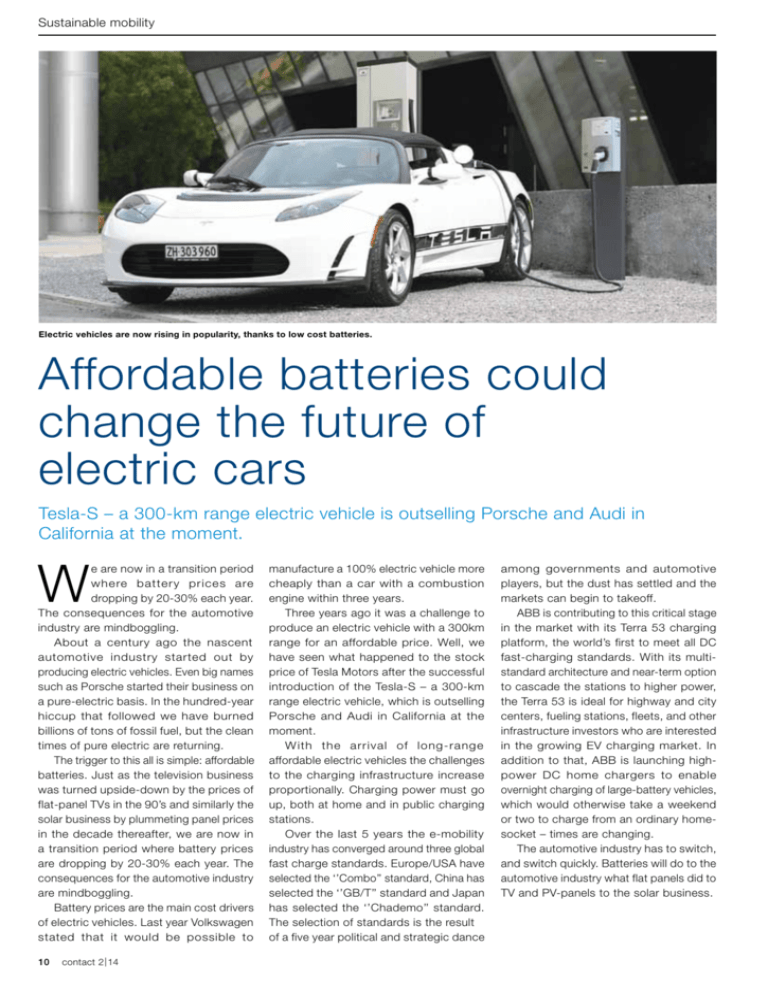
Sustainable mobility Electric vehicles are now rising in popularity, thanks to low cost batteries. Affordable batteries could change the future of electric cars Tesla-S – a 300-km range electric vehicle is outselling Porsche and Audi in California at the moment. W e are now in a transition period where battery prices are dropping by 20-30% each year. The consequences for the automotive industry are mindboggling. About a century ago the nascent automotive industry started out by producing electric vehicles. Even big names such as Porsche started their business on a pure-electric basis. In the hundred-year hiccup that followed we have burned billions of tons of fossil fuel, but the clean times of pure electric are returning. The trigger to this all is simple: affordable batteries. Just as the television business was turned upside-down by the prices of flat-panel TVs in the 90’s and similarly the solar business by plummeting panel prices in the decade thereafter, we are now in a transition period where battery prices are dropping by 20-30% each year. The consequences for the automotive industry are mindboggling. Battery prices are the main cost drivers of electric vehicles. Last year Volkswagen stated that it would be possible to 10 contact 2 | 14 manufacture a 100% electric vehicle more cheaply than a car with a combustion engine within three years. Three years ago it was a challenge to produce an electric vehicle with a 300km range for an affordable price. Well, we have seen what happened to the stock price of Tesla Motors after the successful introduction of the Tesla-S – a 300-km range electric vehicle, which is outselling Porsche and Audi in California at the moment. W ith the arrival of long-range affordable electric vehicles the challenges to the charging infrastructure increase proportionally. Charging power must go up, both at home and in public charging stations. Over the last 5 years the e-mobility industry has converged around three global fast charge standards. Europe/USA have selected the ‘’Combo’’ standard, China has selected the ‘’GB/T’’ standard and Japan has selected the ‘’Chademo’’ standard. The selection of standards is the result of a five year political and strategic dance among governments and automotive players, but the dust has settled and the markets can begin to takeoff. ABB is contributing to this critical stage in the market with its Terra 53 charging platform, the world’s first to meet all DC fast-charging standards. With its multistandard architecture and near-term option to cascade the stations to higher power, the Terra 53 is ideal for highway and city centers, fueling stations, fleets, and other infrastructure investors who are interested in the growing EV charging market. In addition to that, ABB is launching highpower DC home chargers to enable overnight charging of large-battery vehicles, which would otherwise take a weekend or two to charge from an ordinary homesocket – times are changing. The automotive industry has to switch, and switch quickly. Batteries will do to the automotive industry what flat panels did to TV and PV-panels to the solar business.
